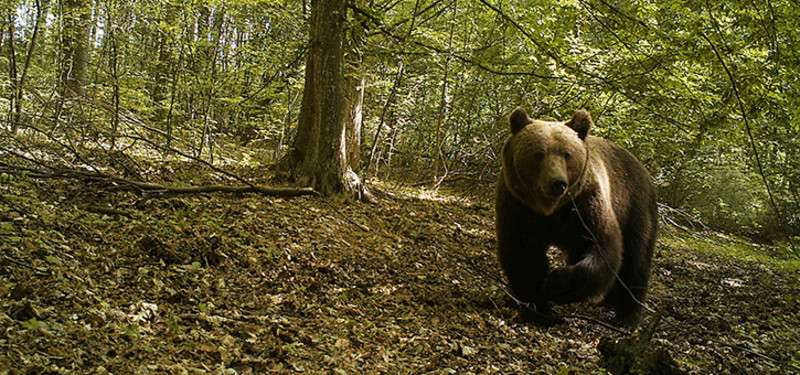Top predators play an important role in human-dominated ecosystems

Large carnivores such as brown bears or wolves—so-called top predators—play a crucial role in the regulation of wildlife populations even in human-dominated ecosystems. This is the result of a joint study by scientists of the Leuphana University Lueneburg, the Humboldt University Berlin and the Charles Sturt University and the Deakin University (both Australia), recently published in the journal Proceedings of the Royal Society B. That top predators are important for the regulation of the ecosystem in natural landscapes is well known.
The study is one of few that examine the impact of human activities on natural predator-prey relationships of wild animals and the regulation of wildlife populations, notably by reducing the number of herbivores. However, humans also play an important role, here, through their direct and indirect interventions in the ecosystem. Humans transform the landscape through agricultural use and by hunting, actively affecting wild animal population at all levels of the food pyramid—usually in a negative way.
For their study, the scientists used camera traps to survey the presence of wild animals in a human-dominated region in Transylvania / Romania, including top predators such as brown bears and wolves; medium-sized predators such as red foxes; and large herbivores such as deer. People and unrestrained dogs act as additional predators in this system.
"The demonstrated strong effects of human activities on wildlife populations at all levels of the food pyramid show how necessary it is to systematically consider people as part of the food pyramid in the future," said Ine Dorresteijn, lead author of the study. "Especially against the background that top predators like wolves increasingly return to human-dominated landscapes, it is important to understand the impact of the simultaneous presence of these predators and of people on the different levels of the food pyramid. Our study makes an important contribution to this."
More information: Ine Dorresteijn et al. Incorporating anthropogenic effects into trophic ecology: predator–prey interactions in a human-dominated landscape, Proceedings of the Royal Society B: Biological Sciences (2015). DOI: 10.1098/rspb.2015.1602
Journal information: Proceedings of the Royal Society B
Provided by Leuphana Universität Lüneburg


















